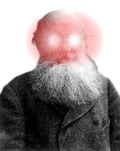Bonus question: What is an invention that was really important and there is no telling how long we would have to wait for it to appear had it not been discovered by the one credited with it?
Literally everything
exactly, a great tv series on the subject incidentally https://www.imdb.com/title/tt0078588/
Can’t you say that about all inventions?
For the thread:
-
The Wright Brothers were the first to fly but there were numerous teams working on doing that.
-
Ford generally gets the credit for assembly line production for cars. Ford “invented” the moving production line for cars, while it was actually Olsom Olds who “invented” the assembly line for cars. All of this was during the Industrial Revolution. The first true assembly line was a. Ship outfitting process that was done in the 12th century.
-
Bell is credited for the invention of the Telephone, He certainly is the one who patented it.
Jmm Acktually… Santos Dumont fly first. What the Wright brothers did was inventing Angry Birds.
-
I think this applies to everything. The “geniuses” we praise (Einstein, Newton, Galileo) are not superhumans with access to secret knowledge that only their mind could unlock, they are just very clever and astute individual that studied a lot and figured out things by applying a mix of logic and intuition to information that everybody already had.
If they didn’t exist, someone else would have (likely) eventually come to the same conclusions. Heck maybe someone did years earlier but never told anybody.
There is not even a thought, or an invention, which is not common property, born of the past and the present. Thousands of inventors, known and unknown, who have died in poverty, have co-operated in the invention of each of these machines which embody the genius of man.
Thousands of writers, of poets, of scholars, have laboured to increase knowledge, to dissipate error, and to create that atmosphere of scientific thought, without which the marvels of our century could never have appeared. And these thousands of philosophers, of poets, of scholars, of inventors, have themselves been supported by the labour of past centuries. They have been upheld and nourished through life, both physically and mentally, by legions of workers and craftsmen of all sorts. They have drawn their motive force from the environment.
The genius of a Séguin, a Mayer, a Grove, has certainly done more to launch industry in new directions than all the capitalists in the world. But men of genius are themselves the children of industry as well as of science. Not until thousands of steam-engines had been working for years before all eyes, constantly transforming heat into dynamic force, and this force into sound, light, and electricity, could the insight of genius proclaim the mechanical origin and the unity of the physical forces. And if we, children of the nineteenth century, have at last grasped this idea, if we know now how to apply it, it is again because daily experience has prepared the way. The thinkers of the eighteenth century saw and declared it, but the idea remained undeveloped, because the eighteenth century had not grown up like ours, side by side with the steam-engine. Imagine the decades that might have passed while we remained in ignorance of this law, which has revolutionized modern industry, had Watt not found at Soho skilled workmen to embody his ideas in metal, bringing all the parts of his engine to perfection, so that steam, pent in a complete mechanism, and rendered more docile than a horse, more manageable than water, became at last the very soul of modern industry.
Every machine has had the same history — a long record of sleepless nights and of poverty, of disillusions and of joys, of partial improvements discovered by several generations of nameless workers, who have added to the original invention these little nothings, without which the most fertile idea would remain fruitless. More than that: every new invention is a synthesis, the resultant of innumerable inventions which have preceded it in the vast field of mechanics and industry.
Science and industry, knowledge and application, discovery and practical realization leading to new discoveries, cunning of brain and of hand, toil of mind and muscle — all work together. Each discovery, each advance, each increase in the sum of human riches, owes its being to the physical and mental travail of the past and the present.
By what right then can any one whatever appropriate the least morsel of this immense whole and say — This is mine, not yours?
OH FUCK KROPOTKIN USED EM DASHES
bruh was literally AI

you can tell from the shining red eyes. Bread-Daddy was a terminator

had they not done it at the time, it is likely that someone else would have done it anyway not long after?
I think it’s a safe assumption that most inventions would have been invented by someone else, the opposite is usually the more notable exception. Some things may have been invented and forgotten by history multiple times because of random things like there was no supply chain for copper/steel/coal or w/e back then.
The thing about inventions is that, a fair amount of them will have a name tied to it who you’ve never ever heard before. But you’ll most likely believe the name that is tied to it but should be more credited with refining the invention to what it would be. And one poster clearly explained that.
There will always be someone somewhere inventing something, but there’s also opportunists out there ready to pounce, take up the invention, patent it before someone else does and run away with the credit.
I think the telephone sort of fits. It’s attributed to Bell but that’s mainly because he wiggled his way into a US patent before his competition. The telephone has many fathers though: Bourseul, Manzetti, Reis - just to name three. The latter is also the father of the word telephone but died before it took off. There were many engineers tinkering so if Bell hadn’t taken the crown, another person would have done it.
Bonus answer: penicillin. Alexander Flemming. A lucky, accidental discovery. If mold hadn’t gotten sloppily into his cultures we might all have died of the plague or something nice like that.
Someone shared an article with me once that explained quite a few inventions were actually developed around the same time in different areas, sometimes across the globe. I have to get to work now so I can’t try to find it just yet, but if I remember I’ll go in search of it when I have a chance. It was an interesting read pointing to a collective consciousness/knowledge base.
It’s called Multiple discovery. And there’s really no need for collective conciousness. People working with the same information will simply figure out the same solutions to the eqations.
Kinda reminds me of the 100 monkey theory
Calculus methods was independently discovered by Leibnitz and Newton at around the same time, that’s why we have different notations for the same thing.
This is the opposite of celebrated, but the Uranverein program could have resulted in a German atomic bomb during WW2. Fortunately it didn’t work out.
I have to hear about how we wouldn’t have modern rock music if it wasn’t for The Beatles.
Despite Chuck Berry predating them by 2 years. Elvis, Buddy Holly and several others making their crafts.
It was exactly the same case for metal music. Black Sabbath is hailed as the founders of Metal music, but there had already been seeds planted for the genre to blossom anyways before they were a thing.
The history of insulin is exactly that. Although it’s not attributed to a single person but a few.
Calculus for the co-incidental, and probably whatever the fuck Ramanujan was on about for the one-off lol
Well, I think Einstein was a genius but much of his work was built on Minkowski spacetime, so the conclusions about relativity could have been reached at some point when physicists were starting to work with it. I am in no expert position to judge this, but new developments in science do genuinely build on new insights, and Minkowski built the mathematical and theoretical platform that was evidently available to physicists like Einstein.










